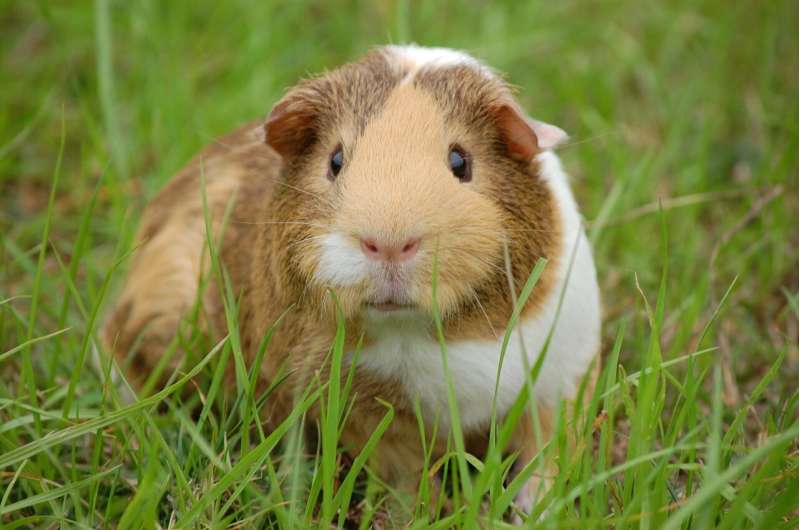Small pets at risk of heatstroke, cases expected to rise alongside global temperatures

Researchers in animal welfare are urging people to be aware of the risk of heatstroke in their pets after a study showed how dogs, cats, guinea pigs, rabbits and ferrets are being taken to veterinary clinics with the condition.
A team at Nottingham Trent University analyzed data relating to small animals seen by UK vets over a five-year period, as well as the triggers and risks.
They found that most affected were dogs, with 146 cases of heatstroke. Three quarters of cases were attributed to the dogs being exercised, while seven percent were due to being confined to a vehicle.
Brachycephalic dog breeds—those with flat faces such as bulldogs—were particularly at risk, making up a fifth of cases.
Sixteen cats were seen by veterinarians for heatstroke, with older cats—those aged over 15 years old—accounting for the highest number of cases.
Hot weather accounted for eight guinea pigs, three rabbits and a pet ferret being treated for the illness, with all of the rabbits also belonging to brachycephalic breeds.
The researchers—based in the university's School of Animal, Rural and Environmental Sciences—say that cases will continue to rise as we face warmer weather due to climate change.
As expected, cases were most common during the summer months, with cases in dogs spanning between April and October.
The most commons symptoms in all animals studied included abnormal breathing, lethargy, collapsing, and gastrointestinal issues, such as diarrhea.
Data for the study was obtained from veterinary practices which participate in the "Small Animal Veterinary Surveillance Network' (SAVNET) and so overall figures for heatstroke will be far greater, the researchers say.
They also argue that many cases may not be seen by veterinary clinics because they go unrecognized by owners due to a lack of awareness of the potential risks and triggers.
The researchers say that cats regularly seek warm areas to sleep and can become trapped in greenhouses and sheds, which could account for some cases going unreported.
Caged pets such as rabbits, guinea pigs and ferrets are at risk of heatstroke due to confinement in hot accommodation, for example if their housing provides limited access to shade, or cooler temperatures, they add.
"Heat-related illness can affect all pets and is likely to become more common as global temperatures rise," said researcher and veterinarian Emily Hall.
She said: "Our findings highlight the need for better public awareness of heatstroke and the risk to all animals. The fact that brachycephalic dogs and rabbits were overrepresented in our study suggests that owners of these animals should be particularly vigilant during hot weather.
Nottingham Trent University researcher Dr. Anne Carter added: "There is a misconception that heatstroke in pets only relates to dogs in hot cars and we need to do more to raise awareness of risk factors not only for dogs but in the wider pet population.
"Owners of small animals such as rabbits, ferrets and guinea pigs may need to review their pet's housing and take steps to keep their pets cool in the warmer months to reduce the risk of heatstroke."
The study, which also involved the University of Liverpool, is published in Open Veterinary Journal.
More information: Emily Hall et al, Surveillance of heat-related illness in small animals presenting to veterinary practices in the UK between 2013-2018, Open Veterinary Journal (2022). DOI: 10.5455/OVJ.2022.v12.i1.2
Provided by Nottingham Trent University





















